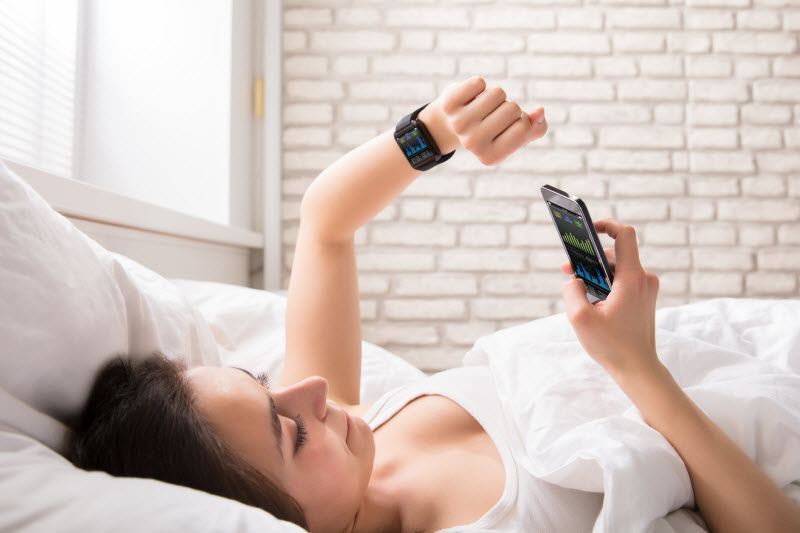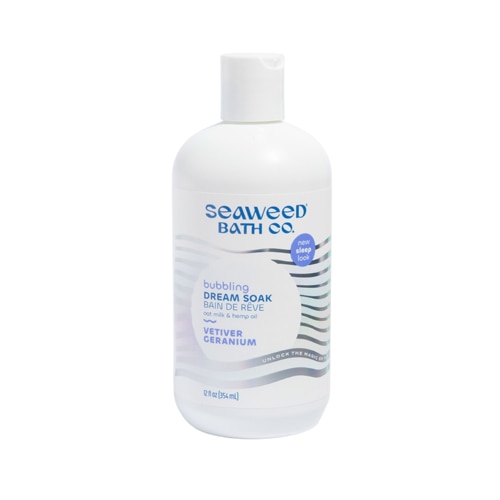[vc_row][vc_column][vc_column_text]Millions of us don’t get enough sleep. Or a lot of us might not get enough
truly restful sleep. To help folks stay on track with their shut-eye, a number of sleep-tracking devices have emerged in recent years. But does this technology really work?
Yes, these devices might lead to more and better snoozing, yet they aren’t a cure-all for your sleeping woes.

How do sleep trackers work?
“Tracking sleep via a smartwatch or wearable device is becoming more and more popular. On the one hand, this is a good thing. Having a grasp on your sleep habits can be the first step toward improving your sleep,”
says Dr. Ali Sawal, a primary care practitioner at Houston Methodist. “On the other hand, many of these devices provide
a lot of information — much of which may not be very accurate — without helping you actually turn this data into better sleep.”
For instance, the sleep data supplied by a tracking device doesn’t enable diagnosis of sleep disorders like sleep apnea and narcolepsy, according to Houston Methodist.
Furthermore, a sleep tracker might provide “very indirect measurements of your sleep,” the health care system says. Houston Methodist recommends being suspicious of complicated metrics like sleep quality, sleep scores, sleep readiness, sleep stages and time spent asleep.
What are some sleep tracker benefits?
But a wearable tracking device can produce reliable data about things like when you went to sleep, when you awakened and your total sleep time, Houston Methodist says. This information can be helpful in pinpointing factors that trigger poor sleep.
In addition, a tracking device and the data it generates might prompt you to practice
better sleep habits.
Aside from wearable devices, technology that may help improve your sleep includes:
Bedside devices. Situated next to your bed, one of these devices collects data primarily about your body movement and breathing, the
Mayo Clinic explains. They also may gather information about temperature, humidity, noise, light and other environmental factors.
Bed sensors. Put under under your sheets or mattress, a bed sensor gathers information about your movement and heart rate. These sensors also might store data about temperature, humidity and other environmental conditions.
Typically, you view sleep data from this technology in a smartphone app. However, the Mayo Clinic emphasizes that the value of this data is limited. Why? Because these devices don’t capture data about brain activity — data that can be gained only through a clinical sleep study. Information about brain activity offers valuable insights into the stages of sleep that someone experiences.
“There’s a role for this technology in helping bring awareness about sleep hygiene and sleep habits,”
says Dr. Q. Afifa Shamim-Uzzaman, director of the Sleep Disorders Center at VA center in Ann Arbor, Michigan, and an assistant professor at Michigan Medicine. “But I would caution people against using these trackers as true reflection of their sleep architecture.”
How to improve your sleep
So, how do you improve your sleep if tracking devices aren’t the answer? Here are six tips from the U.S. Centers for Disease Control and Prevention (CDC).
1. Create a routine. Go to bed at the same time each night and get up at the same time each morning, even on the weekends.
2. Be sure your bedroom is dark, quiet and relaxing at bedtime.
3. Set the temperature at a comfortable level.
4. Keep electronic devices, such as smartphones, computers and TVs, out of the bedroom.
5. Avoid large meals, caffeine and
alcohol before bedtime.
6. Get
exercise. Physical exertion during the day can help you fall asleep at night.[/vc_column_text][/vc_column][/vc_row][vc_row][vc_column][vc_text_separator title="Featured Products" border_width="2"][vc_row_inner equal_height="yes" content_placement="middle" gap="35"][vc_column_inner width="1/3"][vc_single_image image="159038" img_size="full" alignment="center" onclick="custom_link" img_link_target="_blank" css=".vc_custom_1649275173548{padding-right: 7% !important;padding-left: 7% !important;}" link="https://www.vitacost.com/earths-bounty-sleep-perfect-60-vegetarian-capsules"][/vc_column_inner][vc_column_inner width="1/3"][vc_single_image image="159040" img_size="full" alignment="center" onclick="custom_link" img_link_target="_blank" css=".vc_custom_1649275198777{padding-right: 7% !important;padding-left: 7% !important;}" link="https://www.vitacost.com/natures-way-sleep-well-berry"][/vc_column_inner][vc_column_inner width="1/3"][vc_single_image image="155612" img_size="full" alignment="center" onclick="custom_link" img_link_target="_blank" css=".vc_custom_1635274203725{padding-right: 7% !important;padding-left: 7% !important;}" link="#"][/vc_column_inner][/vc_row_inner][/vc_column][/vc_row]



